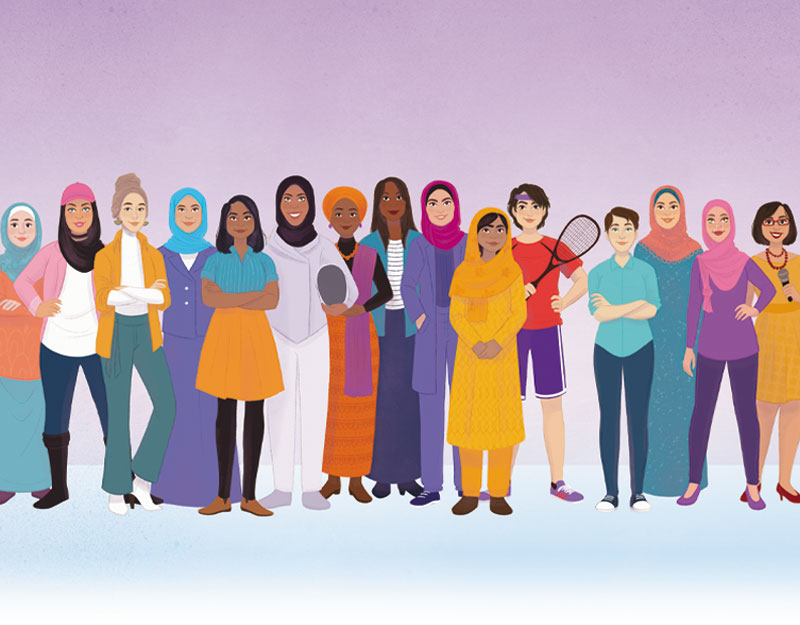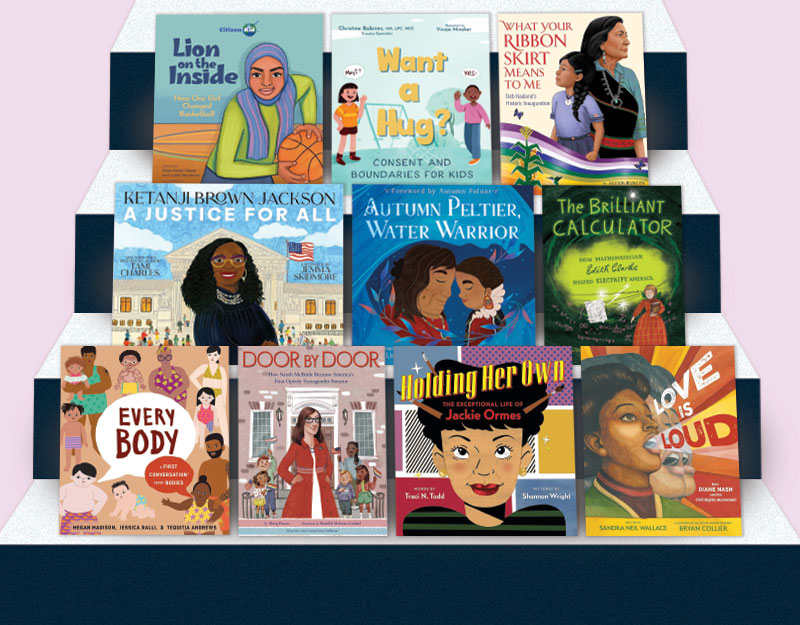The Curious Case of the Gender Based Assignment
 A pink piece of paper set on the counter with these instructions: The students were to do a living Texas history project. Girls were instructed to pick one girl who has made a significant contribution to Texas history, write a 5 sentence report, create a costume, and learn a brief speech about their historical figure. I let it set there for a few days as I tried to figure out the feelings I had about this assignment, and then I contacted the Tween’s teacher saying I was a little concerned about this assignment, the limitations it put on our students, and how it stifled creativity and promoted gendered thinking and bias. The teacher replied, “Your child can study a man if she wants to.” I sat with that reply for a while, and then I wrote a letter expressing more fully my concerns . . .
A pink piece of paper set on the counter with these instructions: The students were to do a living Texas history project. Girls were instructed to pick one girl who has made a significant contribution to Texas history, write a 5 sentence report, create a costume, and learn a brief speech about their historical figure. I let it set there for a few days as I tried to figure out the feelings I had about this assignment, and then I contacted the Tween’s teacher saying I was a little concerned about this assignment, the limitations it put on our students, and how it stifled creativity and promoted gendered thinking and bias. The teacher replied, “Your child can study a man if she wants to.” I sat with that reply for a while, and then I wrote a letter expressing more fully my concerns . . .
I would like to ask the teachers involved in this assignment to contemplate the broad cultural ramifications of presenting this assignment in the way that it was presented and asking ourselves what is the educational value of the gender limitations put on the assignment. For me as a parent and a woman, there are two main concerns:
ADVERTISEMENT
ADVERTISEMENT
1) The assignment itself seems to have unnecessary gender parameters put on it that re-emphasizes dangerous cultural messages.
Girls are constantly told they should stay out of “man things” in this male dominated society, and the subliminal message here seems to re-emphasize this. Likewise, guys are taught that they are above girls and that girls are not worthy of their time and attention, a message that seems to be validated by this assignment. But what if we started to identify each other as people first and not by gender? If we instead choose to see and learn about the value of people based upon their individual acts irregardless of their gender. What if we didn’t tell boys and girls to limit themselves to boy or girl things but just asked them to learn and explore and investigate . . .
I imagine if you had given the same assignment without any specification of gender, the boys would still predominantly choose a male historical figure and the girls would predominantly still choose a female historical figure. But they would have done so without someone in a position of authority telling them to do so and reinforcing dangerous cultural messages.
From the moment our children are born, they are being bombarded with these cultural messages that seem to suggest that girls are one way and boys are another and their worth is somehow dependent on their sex. But the truth is, each and every individual is their own thing and all people have value. Gender is only one part of who we are, and should not be anywhere near the top of ways in which we define ourselves. Instead, I would hope that our children would seek to define themselves as good people, moral beings, intelligent, compassionate, able to accomplish great things in this world. But when they are constantly bombarded by these messages of gender, they start to put limits on themselves (and their peers) based on these messages. They start to view the opposite gender as different, foreign, alien, and sadly, often as unworthy.
I would like my daughter to go up in a world where she believes she can achieve the scientific accomplishments of Albert Einstein and Thomas Edison just as much as she can achieve the accomplishments of Betsy Ross and Harriet Tubman. And history is already so male dominated and focused, imagine what would happen if we asked our boys to study the history of women more, and to put themselves in the position of a woman in history. Education is about challenging oneself, critical thinking, opening your eyes to the truth of the world around you and learning from it – I feel that this assignment, and the gender based limitations put on it, does the exact opposite of this.
2) The presentation of the assignment on color coded paper – pink for girls and blue for boys – further acculturates cultural gender stereotypes.
I feel that as educators, especially those teaching subjects as important as history, we need to ask students to think deeply about what we can learn from history, and I would hope that one of those messages would be that men and women should have equal rights with equal dignity and respect and opportunity. We need to ask them to question gender stereotypes so that we as a nation can move forward into greater equality rather than reinforcing the age old gender roles.
In the year 2013, women holding the same jobs as men still earn less. Women are still objectified and described first and foremost according to their looks as opposed to their abilities. Women are often raped, beaten, and murdered in part because we are seen as less than men. Congress is made up of less than 20% women. The 100% Men Tumblr highlights how few women there are in the world of tech, media and politics. Even as a librarian, there are more female librarians though there are more male librarians in administrative positions. In a time when gender shouldn’t matter, it unfortunately still does because we keep teaching our children that it does.
ADVERTISEMENT
ADVERTISEMENT
I want my daughter to receive as few gender specific and alienating messages as possible in her life, especially from people in positions of authority in her life – and especially in the educational realm which should have moved past simple minded classification systems. I worry about what the cumulative effect of these gender messages have on our children, and why we can’t break free of them; why we can’t look at each individual as a person first and not define them by gender. Why we can’t see the merits of a person’s historical accomplishments irregardless of their gender? And yes, I recognize that race and gender are sometimes important in the study of history when we consider what others have accomplished in spite of the world that they lived in, but that is not the same issue being discussed here. Why do choose to put our children, ourselves, in such narrow boxes and allow a culture to define – and limit – other based on such narrow label as gender? Why would my anatomy define me as opposed to the character of my person, the depth of my soul, my contributions to this world, my brain and how I choose to use it? That is what I believe we need to be teaching our children.
Imagine what a different assignment this would be if the students were just given a neutral colored piece of paper with the simple statement that they needed to choose a historical figure and study their lives and the contribution they had made to the world. No preconceived notions, no gender based messages – just an invitation to explore and think critically. That is the education that I believe our children need.
What I do hope is that at some point these concerns may be talked about among those giving this assignment and in the future it will be presented in a gender neutral way. I don’t want educators coming in with their personal bias and telling my daughter who she should be, I want them to set up safe environments for her to explore it and decide on her own, that is, I believe, the primary function of education
So, there you have it: My thoughts on the gender based assignment. Would it have bothered you? Would you have written a letter? What else do you think I should have said? Discuss (nicely!) in the comments.
More on gender at TLT: I’m Just a Girl? Gender in YA Lit
Edited 5/08/13 to add the Maureen Johnson link
Filed under: Education, Gender, Gender Roles
About Karen Jensen, MLS
Karen Jensen has been a Teen Services Librarian for almost 30 years. She created TLT in 2011 and is the co-editor of The Whole Library Handbook: Teen Services with Heather Booth (ALA Editions, 2014).
ADVERTISEMENT
ADVERTISEMENT
SLJ Blog Network
One Star Review, Guess Who? (#202)
This Q&A is Going Exactly As Planned: A Talk with Tao Nyeu About Her Latest Book
Exclusive: Giant Magical Otters Invade New Hex Vet Graphic Novel | News
Parsing Religion in Public Schools
ADVERTISEMENT









That definitely would have bothered me! I commend you for a very well written letter. If it had been me, I don't know that I would have been able to react in so calmly a manner. As a pre-service teacher, it makes me wonder why this educator thought that was acceptable. But maybe I'm just a crazy liberal feminist… Well done!
This article actually made me want to cry. When I was in the fifth grade, we were working on one of those projects where you have to put together a bridge out of toothpicks. I was in a group of four – the only girl in the group. The boys relegated me to the position of 'secretary' because of my gender. And the teacher let them get away with it (she was a woman herself!). But they told me that I was inferior and that everyone knew that girls were no good at science and that I would just 'mess it up.' I'm unsure if I even told my mother what happened, because I was so ashamed. I'm glad that you spoke up and also that you wrote this article. I think people are just blinded by gender. It has become so intrinsic and ingrained in our culture that we do not even see it anymore. So thank you for standing up and also for writing this article. (In case anyone is curious, I grew up in the 90s, so that incident happened in '95).
Another great idea would be if ALL the students had to pick an important woman. Boys need to be taught that women can be leaders, influences, scientists, etc and that it is completely acceptable for them to have a woman as a role model.
First, good for you, Karen. This brings back a memory of my daughter's first algebra class in middle school. When she asked a question, her male teacher told her that she needn't worry about learning algebra, she probably wouldn't need it!(This is a kid who was counting her change at the check out in the convenience store as a kindergartener.)
I was in a rage when she told me and ready to storm the school. However, my daughter's calmer disposition prevailed, i.e. she forbade me to go under any circumstances. Her words, “It doesn't matter because I'm going to ace his class and every math class I take.” Well, she didn't ace them all, but she did ace his and make really decent math scores through the rest of her educational career, including college. As an adult she is the one who always has the correct answer when the problem solving requires math skills!
So, take that, unthinking teachers. Thank God there are many more of you on the other side of the lane! But I sure wish that I'd thought to just write a letter.
Good for you for speaking up against this assignment! On top of everything those color coded sheets seem ridiculous. Also, since it is a history project, the boys would have been able to focus more on political figures, etc than girls, which could be discouraging. Or what if a boy really wanted to learn about a female historical figure? That kind of interest should not be discouraged just because of gender!
Thanks Randi. I think I wrote the letter instead of talking to her in person to remain calm.
Jessica, this is such a horrible story. I am so very sorry.
I asked the Tween if they studied women during March, Women's History Month and she said no. That made me sad. I agree, there needs to be more women included in our history study.
Gayle, that would be so infuriating! Good for her though for using it to fuel her ambition. As I get older, I just find myself less willing to let injustice slide by, thus the letter. And I love having this forum to try and raise awareness and make people think. My daughter, however, was not super excited about the letter, but the teacher also didn't really say anything to her about it, so I guess that is good.
You raise an excellent point, this did mean that boys had a very different type of person to study for their history project. The Tween had originally chosen LeeAnn Rimes, which I completely nixed because – well – what “significant historical contribution” has she made? But many of the girls are the “museum” were type of performance artists and olympic athletes. I made the Tween choose between Sandra Day O'Connor and Sally Ride, she chose Sally Ride. Thanks for this excellent comment, which I had thought of that point in my letter!